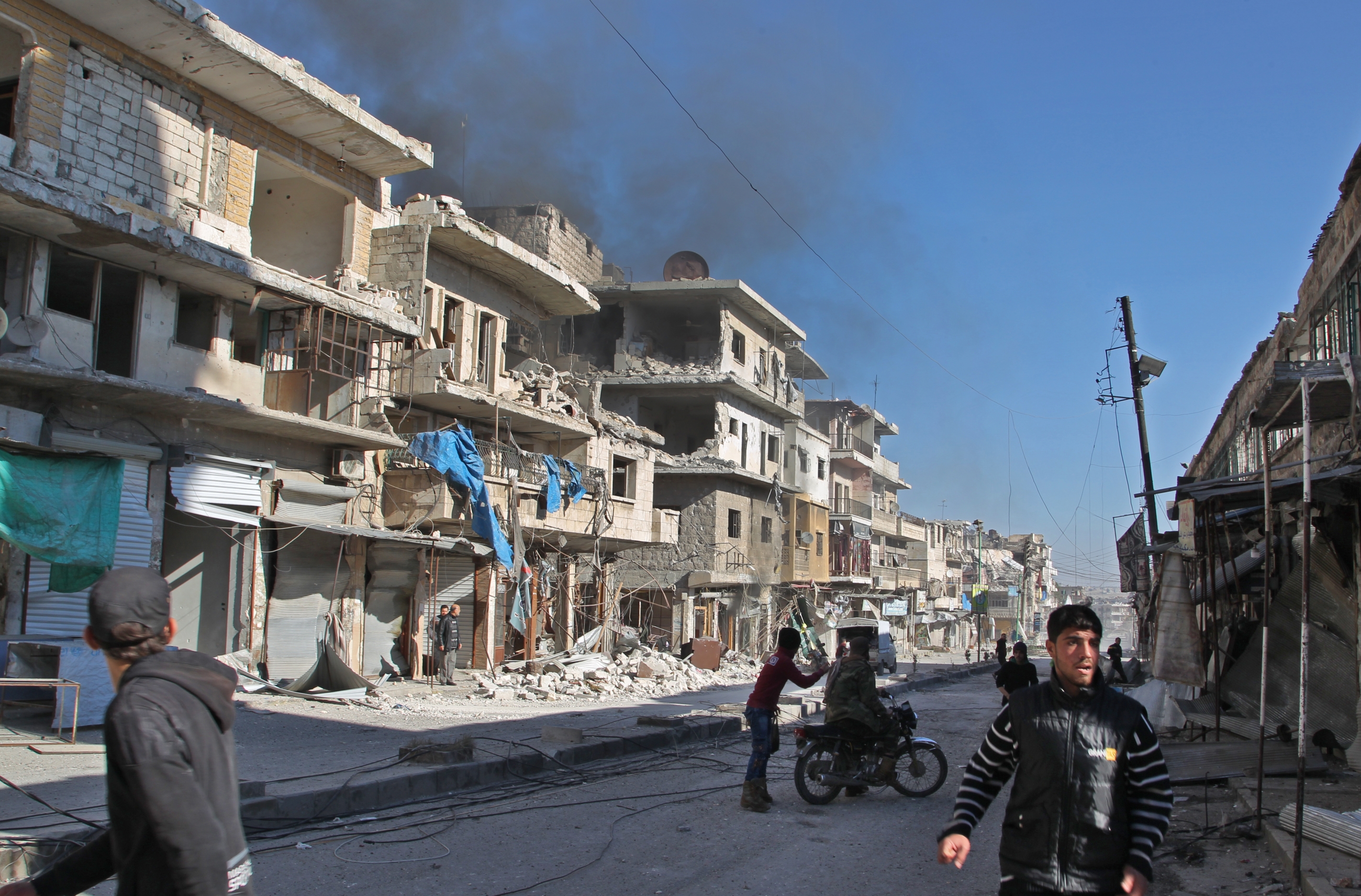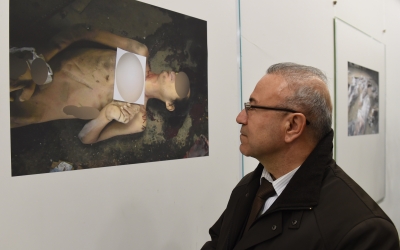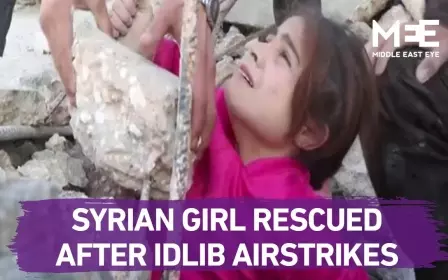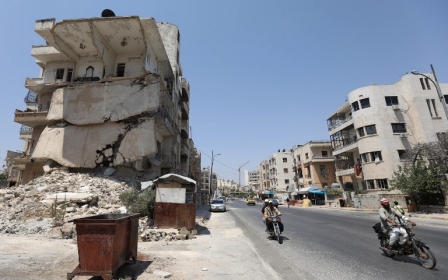Tens of thousands flee Syrian government bombardment in Idlib

Tens of thousands of people have fled a renewed assault in Idlib, as Bashar al-Assad's government continues to bombard the last rebel-held enclave in Syria.
The UN humanitarian agency OCHA on Friday warned that a new wave of displaced people had fled southern Idlib since Monday, heading north for safety.
"Following the intensification of air strikes and shelling since 16 December in southern Idlib, tens of thousands of civilians are reportedly fleeing from Maaret al-Numan area in southern Idlib governorate to [the] north," OCHA said.
The agency added that thousands more were waiting for the violence to ease off before leaving.
The Idlib region, which is home to some three million people including many displaced by Syria's civil war, is controlled by the country's former al-Qaeda affiliate, Hayat Tahrir al-Sham.
New MEE newsletter: Jerusalem Dispatch
Sign up to get the latest insights and analysis on Israel-Palestine, alongside Turkey Unpacked and other MEE newsletters
Damascus has repeatedly vowed to take back control of it.
There has been an uptick in violence in Idlib since Monday and, despite UN calls for a de-escalation, major clashes between Syrian government forces and armed groups have flared in the past 24 hours, killing more than 80 people on both sides, a war monitor said on Friday.
The fighting raged around the militant-controlled town of Maaret al-Numan in southern Idlib, said the Britain-based Syrian Observatory for Human Rights.
The escalation came as warplanes from Syrian government ally Russia pounded areas around Maaret al-Numan and the nearby town of Saraqeb with a series of air strikes, it added.
OCHA said a shortage of fuel for private vehicles is limiting the movement of civilians, while roads leading out of Maaret al-Numan are "extremely dangerous" as they are reportedly being hit by air strikes.
"Since the evening of 19 December, residents of Maaret al-Numan town... began to communicate to the humanitarian community that they wanted to move to safety, but were unable to move due to the heavy aerial bombardment," the UN agency said.
"The numbers of families who [have] already fled in the past 72 hours are estimated to have reached tens of thousands, and there are thousands of others who are potentially waiting for the air strikes and bombardment to ease to allow them safety to move."
'Very bad' situation
On Friday alone, "hundreds of families are reported to have fled north," it said.
The UN agency said the displacement of civilians was straining an already dire humanitarian situation, specially because it is happening during the winter.
"Displacement happening in winter months is exacerbating the vulnerability of people in need.
"Many of those who fled are in urgent need of humanitarian support, particularly shelter, food... [and] non-food items such as winter clothes and health services," it said.
OCHA said that some of the displaced who moved north had not eaten in days.
"Renewal of intensive fighting in the south-eastern sector of the Idlib province may result in more and more people being displaced towards northern parts of Idlib," OCHA warned.
Yasser Ibrahim al-Dandal said he was fleeing with his family to olive groves in northern Idlib, where they would sleep out in the open.
"Hundreds of rockets hit Maarat al-Numan," he told AFP. "The situation is very bad."
Meanwhile, hundreds of people held a protest at a camp for the displaced near the border with Turkey on Friday, decrying the escalation around Maaret al-Numan.
According to the Observatory, fighting over the past 24 hours killed 42 militants, nine rebels and 30 Syrian government loyalists.
Pro-government forces launched a blistering offensive against the region in April, killing around 1,000 civilians and displacing more than 400,000 people from their homes.
Since August, the area has supposedly been protected by a ceasefire announced by Moscow, but bombardments have persisted.
Syria's war has killed more than 370,000 people and displaced millions from their homes since beginning in 2011 with the brutal repression of anti-government protests.
Middle East Eye delivers independent and unrivalled coverage and analysis of the Middle East, North Africa and beyond. To learn more about republishing this content and the associated fees, please fill out this form. More about MEE can be found here.





